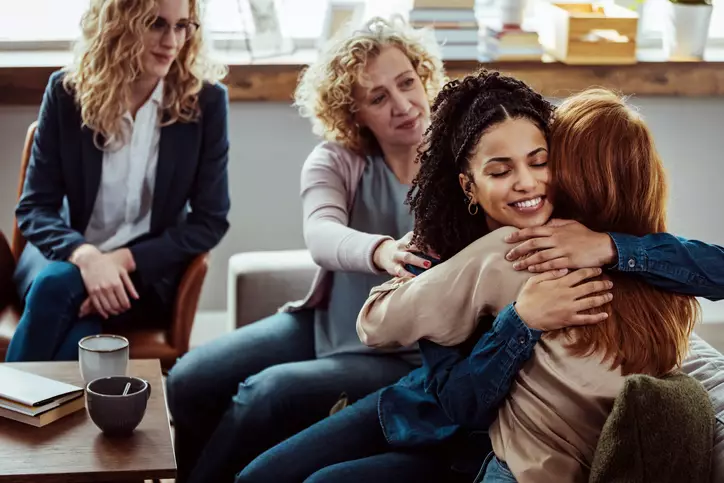How Did Alcohol Become Normalized?
Alcohol has been an integral part of human culture for thousands of years. From ancient civilizations to modern society, the consumption of alcohol has been a common occurrence in social settings. Drinking alcohol has become so familiar to most of us that few give much thought to how we got here. However, the question arises: why is alcohol normalized in our society? In this article, 1st Step Behavioral Health explores some of the reasons why alcohol has become such a normalized part of our lives.
Why is Alcohol Normalized in Our Society?
First and foremost, alcohol is legal and easily accessible. In most countries, the legal drinking age is 18 or 21. Alcohol is easy to get in most places. It is sold in numerous locations, from supermarkets to corner stores and gas stations. Alcohol is also relatively inexpensive, making it an affordable option for many people. The easy accessibility and affordability of alcohol make it a common choice for social gatherings and celebrations. Alcohol is also often associated with relaxation and pleasure. Many people use alcohol as a way to unwind after a long day or to celebrate a special occasion.
If you’re wondering why is alcohol normalized, it also helps to consider the role it plays as a social lubricant. Many people have varying degrees of social anxiety and the depressant effects of alcohol tend to lower inhibitions and can alleviate some of the nervous tension people feel in groups. This is especially true in larger groups where one is expected to converse and there will be lots of people you don’t know (or know well). Drinking alcohol can make it easier for people to socialize and connect with one another. The pleasure and relaxation that people experience from consuming alcohol have contributed to its normalization in society.
Why is alcohol normalized? Some reasons include:
- Alcohol is legal and easy to access in most places.
- Alcohol is relatively inexpensive, most can afford it.
- Alcohol is heavily marketed and available in many appealing forms.
- It lowers inhibitions which can help people relax and have fun.
- It can provide some relief to mild social anxiety.
The History of Alcohol and Capitalism
In considering why alcohol is normalized, we cannot overlook the part that capitalism and popular culture play in promoting alcohol use. Alcohol is heavily marketed and advertised. Advertisements for alcohol are seen everywhere, from billboards to television commercials to social media. The marketing and advertising of alcohol make it seem like a normal and acceptable part of everyday life.
Additionally, alcohol is often associated with luxury and sophistication, making it an attractive choice for those who want to feel fancy or high-class. Another reason why alcohol is so normalized is that it has been a part of human culture for thousands of years. From the ancient Greeks to the Egyptians to the Vikings, alcohol has played a significant role in social gatherings and celebrations. It has become deeply ingrained in our culture, making it a natural part of our lives.
The Downsides of the Normalization of Alcohol
There is no question there are some negative consequences of the normalization of alcohol. One of the most significant issues is the prevalence of alcohol abuse and alcohol use disorders. According to the National Institute on Alcohol Abuse and Alcoholism (NIAAA), over 14 million adults in the United States suffer from alcohol use disorder (AUD)1. This condition can have a significant impact on a person’s health, relationships, and overall quality of life.
Another negative consequence of the normalization of alcohol is the impact it has on young people. Underage drinking is a significant issue in many countries, and the normalization of alcohol can make it seem like a harmless and acceptable activity. However, underage drinking can have serious consequences, including impaired judgment, increased risk of accidents and injuries, and negative effects on brain development.
Alcohol Misuse and Mental Health Disorders
Moreover, alcohol can also have negative effects on mental health. While alcohol can provide temporary relaxation and pleasure, it can also exacerbate symptoms of anxiety and depression. In the long term, excessive alcohol consumption can lead to addiction, which can have severe mental and physical health consequences.
Alcohol can also interfere with many medications, including psychotropic medicines that people with depression or anxiety may have prescribed. Mixing alcohol with other CNS depressants, like benzodiazepines or opioids, can be especially dangerous and even deadly. By some estimates as many as 70% of the people who enter treatment for alcohol addiction may also be diagnosed with a co-occurring disorder such as depression, anxiety or PTSD.
It’s not uncommon for people suffering from an undiagnosed or untreated mental health disorder to “self-medicate” their symptoms in the search for relief. Alcohol is the most popular drug of all and it’s the one people most often turn to in an attempt to alleviate depression or anxiety.
Help for Alcohol Use Disorders and Other Conditions
Why is alcohol normalized? To sum up, the normalization of alcohol can be attributed to various factors, including its legal status, easy accessibility, marketing and advertising, association with pleasure and relaxation, and its role in human culture. However, it is essential to recognize the negative consequences of alcohol, such as alcoholism, underage drinking, and negative effects on mental health.
If you or someone you care about is suffering from some of the negative consequences of alcohol or any other drug, or you just want to learn more about alcohol addiction and treatment for alcohol use disorders, contact us. You’re welcome to call 1st Step Behavioral Health at (855) 425-4846, begin a chat on our site or submit your health insurance for verification using our confidential form here.
Jump to a Section
Call (855) 425-4846
